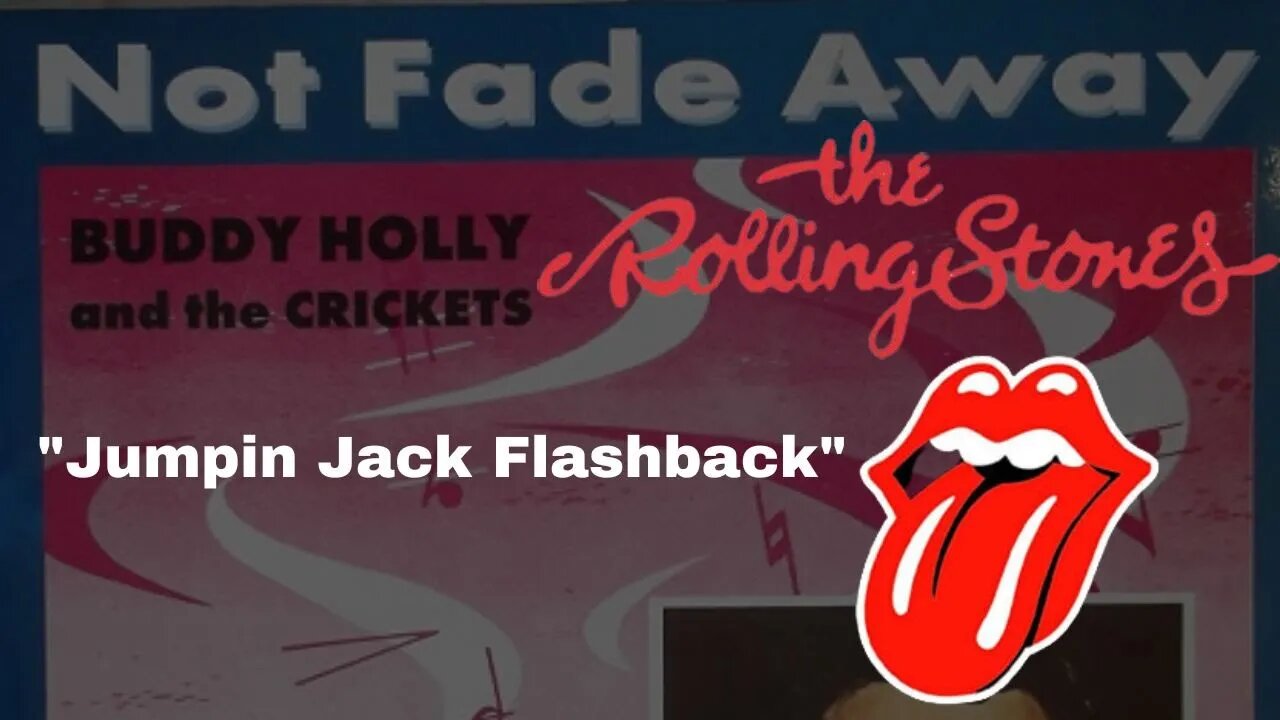Premium Only Content

Discovering The Stones' Secret in 'Not Fade Away' | Jumpin Jack Flack Back #shots #rollingstones
Title: Rock Legends, The Rolling Stones: "Not Fade Away" Leaves an Indelible Mark on the Music World
Introduction
When it comes to iconic rock bands, few names resonate as powerfully as The Rolling Stones. With an illustrious career spanning over half a century, this British rock 'n' roll juggernaut has blessed us with endless hits that continue to captivate music lovers across generations. One such masterpiece that undeniably left an everlasting impact on the music world is their version of "Not Fade Away."
The Background
Originally penned by Buddy Holly and Norman Petty, "Not Fade Away" found its way into the annals of rock history as a timeless anthem. However, in 1964, The Rolling Stones injected their inimitable style and energy into the track, creating a distinctive rendition that elevated it to new heights. Released as a B-side to their hit single "Little Red Rooster," this cover cemented the Stones' reputation as pioneers of the rock genre.
Impact on the Music World
The Rolling Stones' version of "Not Fade Away" sparked an explosive reaction within the music world, forever imprinting the band's influence. Here are some ways in which this rendition made its mark:
1. Pioneering Rhythmic Innovation: The Stones' version of "Not Fade Away" transformed the song into a marvel of rhythmic complexity. Charlie Watts' percussive genius laid the foundation, combining a shuffling beat with syncopated accents, creating a driving force that would soon become emblematic of the Rolling Stones sound.
2. Infectious Guitar-driven Hooks: Keith Richards' guitar work on this track is nothing short of revolutionary. By incorporating infectious riffs and emphasizing the song's driving rhythm, Richards crafted a guitar part that immediately grabs the listener's attention and refuses to let go. He pioneered a style that would set the blueprint for countless rock bands to follow.
3. Distinctive Vocal Delivery: Mick Jagger's vocal performance on "Not Fade Away" showcases his unparalleled ability to infuse a song with raw energy and personality. His raspy voice and dynamic delivery became synonymous with the rebellious spirit that defined the rock 'n' roll revolution of the 1960s.
4. Cultural Influence: As the Stones' fame soared, so did the mainstream recognition of "Not Fade Away." The band's success helped introduce the song to a new generation of listeners who were drawn to their rebellious image and groundbreaking sound. This elevated the importance of the track, solidifying it as an integral part of rock 'n' roll history.
5. Enduring Legacy: Almost six decades later, the impact of The Rolling Stones' version of "Not Fade Away" remains undeniable. Its influence ripples through subsequent generations of artists who have perpetuated the genre, ensuring the Stones' place in the pantheon of rock music.
Conclusion
The Rolling Stones' version of "Not Fade Away" stands as a testament to the band's unparalleled musicianship, creative ingenuity, and unflinching commitment to redefining rock 'n' roll. By transforming an already classic song into a transcendent masterpiece, the Stones not only left their indelible mark on the music world but also paved the way for countless artists who would follow in their footsteps.
Elevating the song's rhythmic complexities, infectious guitar hooks, distinctive vocals, and cultural influence, this iconic rendition solidified The Rolling Stones' status as true rock legends. "Not Fade Away" not only represents an essential chapter in the story of the Stones but also symbolizes a pivotal moment in the ever-evolving landscape of rock music.
-
 LIVE
LIVE
The Mel K Show
1 hour agoMel K & General Mike Flynn | Betrayal of a Nation: Soros’ NATO World Order | 8-28-25
1,030 watching -
 1:32
1:32
Gaming on Rumble
8 hours agoWhat is the Rumble Creator Program?!?! | Lvl UP
903 -
 LIVE
LIVE
Joker Effect
9 minutes agoInterviewing BEN JAMMINS! A personality with over 1 BILLION gif views. Let's give him a warm welcome
170 watching -
 11:37
11:37
Robbi On The Record
6 hours agoThe Devil is in the Branding..
603 -
 LIVE
LIVE
Savanah Hernandez
2 hours agoWhy Gen-Z Is So Radicalized Against Immigration
200 watching -
 LIVE
LIVE
megimu32
1 hour agoOTS: From A-List to MIA! 90s & 2000s Stars Who Vanished
119 watching -
 LIVE
LIVE
TinyPandaface
1 hour agoYour FACE Is A Gaming Channel! | Super Smash Bros w/ THE FELLAS!
93 watching -
 LIVE
LIVE
Flex011
2 hours agoMETAL GEAR SOLID : SNAKE EATER
25 watching -
 21:42
21:42
The Rad Factory
8 hours agoCrotch Rocket Swapped F1 car
1261 -
 LIVE
LIVE
FrizzleMcDizzle
1 hour agoSlaying Zombies
9 watching